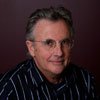Tim Rowse

Tim Rowse holds honorary positions at Western Sydney University and the Australian National University His books include Indigenous and Other Australians Since 1901 (UNSW Press, 2017) and (co-edited with Lawrence Bamblett and Fred Myers) The Difference Identity Makes (Aboriginal Studies Press, 2019).
Individuals have crises; dealing with them sometimes makes a person stronger. Perhaps nation-states are similar: crises make them stronger and better. But is humanity as a whole like this? This question is raised but not answered in Jared Diamond’s Upheaval.
Diamond sees four crises facing humans: the possibility of nuclear war killing millions and bringing ‘nuclear winter’; climate change; ... (read more)
Keith Windschuttle seeks to undermine a ‘mindset’ among historians of Tasmania that started in Henry Melville’s History of Van Diemen’s Land (1835) and continues in Henry Reynolds’s An Indelible Stain (2001). Mindsets, or ‘interpretive frameworks’, sensitise historians to ‘evidence’ that fits their ‘assumptions’. While ‘often very productively’ applied, Windschuttle conce ... (read more)
The Aborigines of Australia are among the more land-rich of colonised peoples. More than one fifth of Australia is under Aboriginal ownership, and a perpetual fund – established by Labor and fattened by Coalition and Labor governments – will add to this estate. To examine this recent change in Australian real estate as a ‘quiet revolution’ was a good choice of theme by Marcia Langton.
... (read more)
